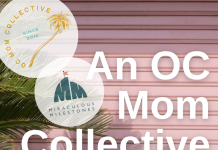
In January of this year, we decided to surprise my three-year-old with his very own fish. He absolutely loves aquariums and he even has a battery operated fish tank that lights up and helps him go to sleep at night. So, of course, we thought, hey, why not get him his own fish? It was an excellent idea and we had so much fun going to Petsmart to pick out his Betta. He aptly named the little guy Pinky due to his rosy hue, and Pinky got nice and cozy in my son’s room. My son would look at his fish and talk to him, and he was mesmerized by Pinky’s fast swimming ability and hide-and-seek sills.
Over the past two weeks, however, something happened with our tank and it became very grimy despite having a filter. We cleaned it out completely and things seemed to be going well, but Pinky developed some sort of reaction to it and he stopped eating. I suppose that was a blessing because we saw this coming for a week now as his condition deteriorated. I decided to look on www.kidshealth.org for tips on how to have the inevitable conversation about death, so when the day came, I sat my son down and this is how things went.
Younger kids tend to take things literally, so we started the conversation with an example from one of his favorite movies, The Land Before Time. We talked about how Little Foot’s mommy died in the movie and that Little Foot was sad. We then explained that sometimes things die when they are sick, or old, or badly hurt like Little Foot’s mom. He seemed to grasp that pretty well.
I chose not to complicate the conversation about the unpredictability of death because I didn’t want him to be afraid of it.
We then talked about how Pinky was sick and that he had died from being so sick. We had to explain that death meant that Pinky went to sleep and he wouldn’t wake up. This was harder because he kept asking if Pinky would come back. We said that he wouldn’t and after a few rounds of this, he seemed to understand. We explained that we tried to help Pinky get better but sometimes we can’t help when someone or something is so sick. Again, this went over ok.
Because I just love talking about feelings, the next step was to ask my son how he felt about Pinky’s death. He said he was sad and that he didn’t want Pinky to go away and not come back. I then asked him if Pinky was a good fish and he said yes. He asked what would happen to Pinky now, and I told him that there are different funerals for different things. Dogs and cats get cremated (this helped because our cat was cremated when my son was 2 and her ashes sit on our mantle so he understood what that meant), people get buried, and fish get flushed.
I debated whether or not to shield him from this part but I don’t want him to have questions about what happened to Pinky and I appreciate the benefit of transparency so I was honest with him. We had a quick conversation about why flushing was the route of choice (because fish return to the water…I think Finding Nemo helped him get this part), and I asked him if he wanted to participate in the flushing. He said yes. So I let him and I asked him if he’d like to tell Pinky anything. He said, “thanks for being my fish, you were nice”. It was beautiful.
I’d like to think that this whole process went smoothly but we are not that far removed yet.
I will inevitably get questions about where Pinky went as the weeks go on and whether or not he can come back.
This is totally normal as the permanence of death is hard for a small child to grasp.
I also know that there will be a mix of emotions or even the absence of them. This is normal too. We saw a glimpse of this when he asked for a kitty immediately after the funeral. My advice is to let the child take the lead. Don’t rely on euphemisms and try to keep things simple.
Reinforce the finality of it all and address any feelings they may have. This is also a great time to enhance the child’s vocabulary for feeling words. And please please don’t shield your child from this process by replacing the fish and acting like nothing happened.
Death is ok to talk about.
It will affect the child eventually and it’s much better to be open and honest than it is to try to move away from a healthy conversation just because it’s uncomfortable. Don’t worry, no one expects you to be perfect. Just real.
RIP, Pinky












